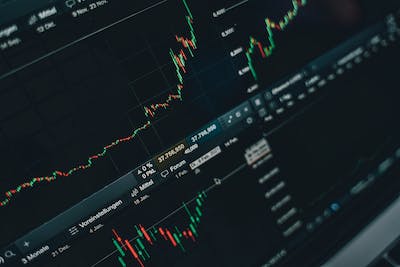How Can We Earn From Forex Trading

Nord Fx
May 4, 2014
Join FXTM – A Regulated Broker
May 7, 2014Earning from forex trading involves buying and selling currencies to make a profit. While there is potential for financial gain, it's important to emphasize that forex trading is highly speculative and involves risks. Many traders, including experienced professionals, can experience losses. Here are some steps to consider if you're interested in earning from forex trading:
-
Education and Knowledge: Start by learning about the forex market, how it works, and the factors that influence currency exchange rates. Understanding technical and fundamental analysis, trading strategies, and risk management is essential.
-
Choose a Reliable Broker: Select a reputable and regulated forex broker to provide you with a trading platform. Ensure the broker offers a user-friendly platform, competitive spreads, leverage options, and access to the currency pairs you want to trade.
-
Demo Trading: Most brokers offer demo accounts that allow you to practice trading with virtual money. Use the demo account to familiarize yourself with the trading platform and test your strategies without risking real capital.
-
Develop a Trading Strategy: Create a trading plan that includes your goals, risk tolerance, preferred trading style (day trading, swing trading, etc.), and entry/exit criteria. Your strategy should be based on thorough research and analysis.
-
Risk Management: Managing risk is crucial. Use techniques like setting stop-loss and take-profit orders to limit potential losses. Never risk more than you can afford to lose on a single trade.
-
Start Small: When you're ready to trade with real money, start with a small investment that you can afford to lose. As you gain experience and confidence, you can gradually increase your trading capital.
-
Stay Informed: Stay updated on global economic events, news, and geopolitical developments that can impact currency markets. Economic indicators, interest rate decisions, and political events can influence exchange rates.
-
Use Analysis Tools: Employ technical and fundamental analysis to make informed trading decisions. Technical analysis involves studying price charts and patterns, while fundamental analysis considers economic indicators and news.
-
Continuous Learning: Forex trading is a dynamic field. Continuously educate yourself, refine your strategies, and adapt to changing market conditions.
-
Emotional Discipline: Keep emotions in check while trading. Avoid making impulsive decisions based on fear or greed. Stick to your trading plan and strategy.
-
Track Your Performance: Maintain a trading journal to record your trades, strategies, outcomes, and lessons learned. Analyzing your trades can help you improve over time.
-
Seek Professional Advice: Consider seeking advice from financial professionals, mentors, or forex trading communities. Engaging with experienced traders can provide valuable insights.
Remember that while there is potential for profit in forex trading, there is also a risk of loss. Many traders experience losses, and it's important to be prepared for both outcomes. Never invest money that you cannot afford to lose, and only engage in forex trading if you have a solid understanding of the market and the associated risks.


